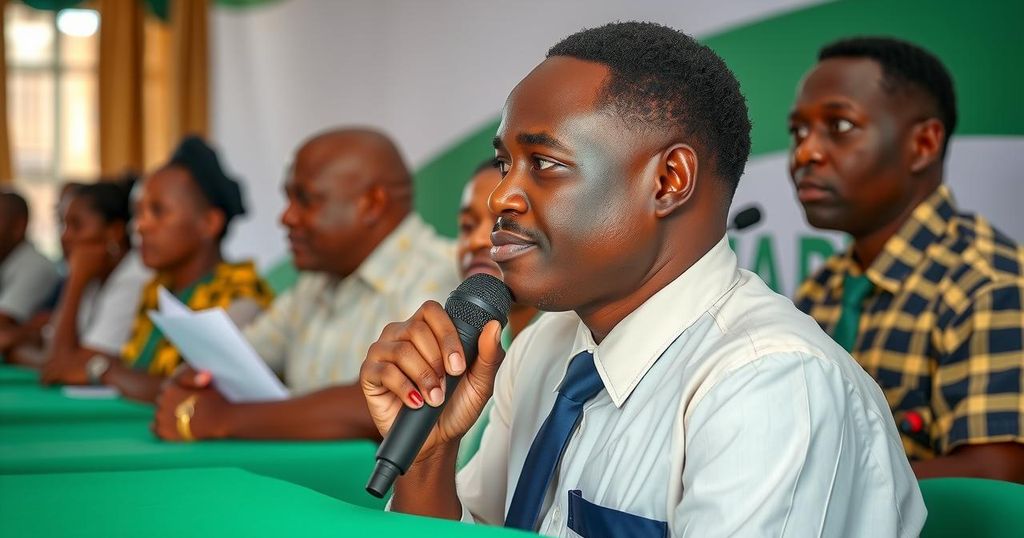Gabon Votes to Approve New Constitution Amid Polarized Public Sentiment
Gabon’s military rulers announced that provisional results from a referendum indicate overwhelming support for a new constitution, with 91.8% voting in favor. The new constitution limits presidential terms to two seven-year periods, disqualifying former leaders based on parental and spousal citizenship requirements. Voter turnout was reported at 53.54%, amid concerns of potential authoritarianism from the ruling junta.
Gabon’s military rulers declared that the populace has overwhelmingly endorsed a new constitution during a recent referendum, as indicated by provisional results announced on Sunday. Approximately 860,000 registered voters participated in this crucial electoral process, which witnessed intense promotion from authorities through various media platforms to ensure voter engagement. The new constitutional framework proposes a presidential tenure limited to two terms of seven years, abolishing the prime minister’s position and prohibiting the inheritance of power.
The Committee for the Transition and Restoration of Institutions (CTRI) revealed that 91.8 percent of voters had supported the new constitution. However, turnout was estimated at 53.54 percent, noticeably lower than earlier figures reported by local media. The voting process at 2,835 polling stations across the country proceeded without any significant incidents, despite enhanced security measures including an extended night curfew.
The revised constitution enforces a requirement that presidential candidates must be Gabonese citizens, effectively disqualifying former leader Ali Bongo Ondimba, who is married to a French national and whose children do not meet the new criteria. Transitional president Brice Oligui Nguema characterized the event as a major advancement for the nation while emphasizing the importance of a transparent voting process.
Public sentiment surrounding the referendum appears polarized. Some citizens expressed their support for the military junta, while critics, including legal professionals, denounced the proposed constitution as a framework designed to perpetuate authoritarian rule. Given the backdrop of a regime change following allegations of corruption and mismanagement under Bongo, many citizens are apprehensive about their future under the new governance structure.
The final results will be confirmed by the constitutional court as observers gauge whether the electoral process has indeed reflected the will of the Gabonese people. Meanwhile, surveys indicate that a majority of citizens believe the country is progressing positively, even as they continue to confront significant socio-economic worries, particularly regarding employment, health care, and living conditions.
The proposal for a new constitution marks a pivotal shift in Gabon’s political landscape, following a coup in August 2022 that ousted former president Ali Bongo Ondimba. Under Bongo’s regime, the nation faced critiques of rampant corruption and ineffective governance, leading to military intervention. The new constitutional measures aim to establish a more stable and democratic governance style, yet they have raised concerns regarding potential authoritarianism under the transitional leadership of Brice Oligui Nguema. Observers are closely monitoring the referendum’s implications for future civilian governance and the socio-economic challenges the country faces.
In conclusion, the referendum results indicate a significant shift in Gabon’s constitutional framework, with voters largely endorsing measures that limit presidential power and promote national eligibility criteria for candidates. Despite this apparent support, skepticism remains regarding the junta’s true intentions and the potential for democratic governance in the wake of historical corruption and mismanagement. As Gabon navigates this transitional phase, the upcoming electoral processes will be critical in determining the nation’s trajectory toward a more democratic system.
Original Source: www.tiogapublishing.com




Post Comment